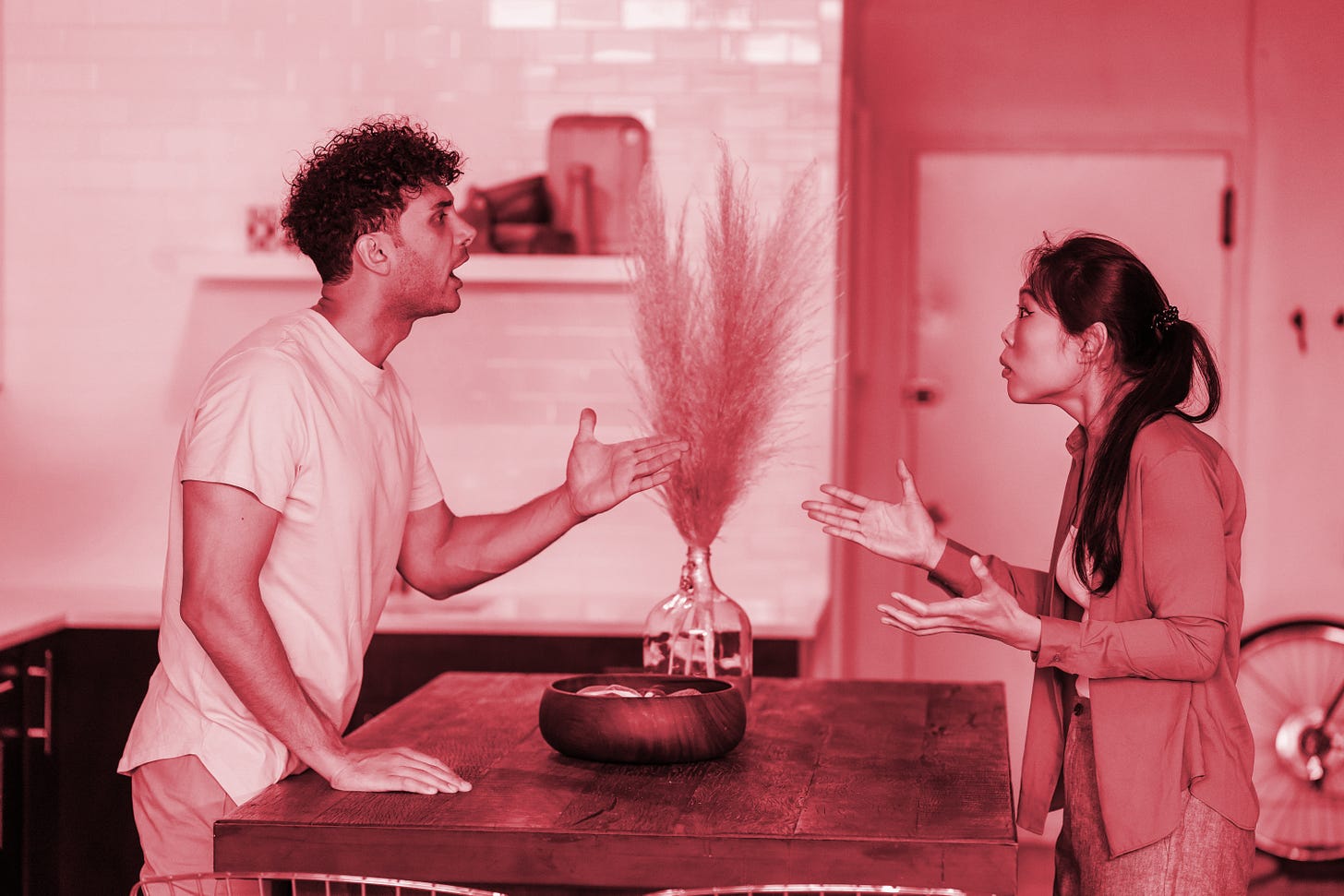Tomorrow morning, I have to take my mother to the hospital to begin the initial stages of a kidney transplant. The purpose of this visit, as I understand it, is informational and educational. She and I will learn more about this foreign thing called a 'kidney transplant.' We (or maybe more so me, as she has been thinking about this for some time) will learn the language, the relationships, and the people involved in this whole process, and then we will be taught how to navigate it.
It is about a two-hour drive each way to the medical center. You have to love the investments in healthcare in South Carolina by its leadership, don’t you? Smack dab in the heart of the diabetes belt, a person living in the state capital must drive two hours for this type of kidney care. This, to me, is the equivalent of having to drive two hours for a plate of pulled pork BBQ in these parts - a state of affairs that would cause the governor to declare a state of emergency.
The big thing for me is the drive.
You see, my mother is not the easiest person to manage. In my mind, I see our mother-son dyad as one in which my mother is the 'problem maker,' and I am the 'problem solver.'
This is never good for a caregiver and child relationship at any time in the life of that relationship. Children are programmed to seek out their caregivers to 'fix' them—ease their pain when they get a boo-boo on the playground, assuage their anxieties about joining the soccer team, slip them a few bucks so they can buy those new kicks, and give them advice as they navigate new stages in life. In other words, they look for parents to be 'problem solvers.' When children do not have that—when they do not have that which they have been programmed to expect as children—they are a little…off.
The best of them (I should make it clear, I mean us)—those whose parents provide some structure and sporadically 'fix' the many problems a child has—simply come out a bit weird: the social equivalent of someone born with a leg too short or with terrible eyesight. The worst of us—those whose parents struggle with substance abuse, mental and physical health issues, and poor mate choices that lead to an inability to provide structure and presence—are put behind the eight ball. Children in these homes have too many hangovers, too many 'diagnoses,' too many jobs, too many sexual partners, and too many 'starting overs.'
To say it again, this time with some pith:
When the child is the problem solver and the parent is the problem maker, the child struggles to become a healthy adult. The child was never given time to be a child who grows into an adult.
Even as the caregiver and child age—move through time together as it were—the relationship is rarely altered. One can imagine two freshly cut wooden wheels tied together by a newly minted steel bar set rolling down a hill on a continuous decline. Eventually, the wooden tires—the parent and child—change over time, sharpening here, warping there. The steel bar, however—the bond that keeps them together—remains strong and shiny.
This durability of the bond between caregiver and child is a godsend for the child, especially when the relationship is a good one and the caregiver is a problem solver. It is hard to quantify the feeling one has of knowing with certainty they can call a parent before their first day on the job to hear some sage advice, a few attaboys and 'I love yous,' and a sign-off of 'Call us if you need anything.'
I say it is hard to quantify because I have never experienced it.
But even in the most difficult of relationships, the bond can still provide some reassurance for the child (e.g., 'My father is a pain with all his yelling and screaming, but I know when push comes to shove, he will still be there even with his yelling and screaming'). It is better to have a 'problem maker' who you know loves you than no one around at all.
On Makers and Solvers
I’d like to say that the above contains some claim about the importance of consistent and present caregiving in the life of a child. I will let the reader come to their own conclusions about that claim—or even about how we understand people who we think have 'failed.' It may be that the movie you are seeing, a tragedy, was not produced or written by them, even as they play the star role.
But the main reason for that digression was to drive home what I mean by 'problem maker.' It is not a person who can’t change your oil. It’s not about competence. It is not a person who asks to borrow money. It’s not about annoyance. It is about toxicity—the type of stress that person imparts on you net of other things they do that might lower your stress. In this way, you know a problem solver by tapping into your memories and thinking about how that person makes you feel.
One last thing: People are not always the same everywhere. I consider my mother a problem maker in many situations, but not all. I imagine this two-hour drive to be filled with backseat driving, constant requests to stop, snide remarks about me and other people, and so on. It’s a problem. It appears as a net loss on the ledger, and she won’t, in this context, offer up something of value. Driving is out of the question (labor). She won’t tell funny stories or regale me with events from her formative years that are interesting or funny (entertainment). She won’t search ahead for places to eat or park (information). But there are few people I would rather have around enjoying a buffet (we love the Golden Corral) or window shopping (we love shopping in cheap stores).
The point here being that who is a problem maker and who is a problem solver is task-specific, even if who is which seems rather consistent in our lives. I am calling my mother a problem maker for shorthand in this piece, not because she is inherently so. If my mother appeared to be a problem maker in so many contexts of my life, this might be because she herself was navigating a stressful existence herself. It could not have been easy growing up in mid-19th century rural South Carolina.
No one 'is' a problem maker or problem solver. We all are people who can sometimes make problems for others and sometimes solve problems for others.
So, back to this drive I must take. I have described up to this point a dyad—me and my mother rolling down the highway. If it is not clear, I anticipate this drive to be more stressful than it would have been had it been me just driving to that same place alone.
Turns out, another person will be participating in this task. In the car, probably in the passenger seat. This is my stepfather.
My stepfather, in many contexts, is a "problem solver." A consummate handyman, I suspect someone working with him in a strictly professional relationship—especially one that is hierarchical and he knows who is giving orders to whom—would find that he thrives.
But in the current context—a two-hour drive to the hospital with his wife—he is a net "problem maker" of the first degree. Now my calculations have changed, and sadly for me, not for the better.
Simple Math
Before I end by repersonalizing this piece, I can restate my thought processes above in a way that can be applied to any task for the reader. You always start with you. You bring a certain stress level to whatever the task is. For me, talking into a microphone on camera or to hundreds of people about an idea I maybe kinda sorta just barely understand - is a surprisingly low-level of stress for me. But doing an activity called "small talk" with three people I somewhat know is more. I (and you) can assume this stress we bring to the task is constant and need not be included in the calculations.
Okay, now the simple math:
Identify the task at hand: What it is and what you want to do.
Identify the people who will be working with you on the task: This includes anyone who you see as deserving no blame for the outcome of the task—a child or someone who is developmentally disabled. That they deserve no blame does not mean they are not to be included in your initial count.
Give a "plus" to the people you feel will lower your stress.
Give a "minus" to the people you feel will add stress.
Do not count people you feel will neither help nor hurt: If they are effectively neutral, do not include them. This is where you might place a child who may be involved in the task by simply being there—hovering around as you are setting up for dinner guests—but does nothing but play their video game the whole time and ask for a juice box occasionally. They just don’t add to your stress level.
Now, back to me. After I write these last sentences, I will have to do my own count and act accordingly.
If my count were positive or even neutral (it is not), then my drive tomorrow would be relatively—given the circumstances—less stressful than if I had to do it with toxic people. It might even be enjoyable, again given the circumstances. Under those conditions, I could allocate some of my mental energy to other things. Why not stay up a little later than usual and re-watch The Avengers or something?
But my count is negative. This means some preparations are in order. More sleep so I will have the mental energy to stay mindful and keep calm? Would an early departure and leisurely pace keep everyone relaxed in the confidence that our appointment won’t be missed—or give far too much time for Person A to remember that thing Person B did two weeks ago they really didn’t like and use some more present discussion to slip it into the conversation? Maybe a last-minute dash to the doctor is what we need, as minds stay focused on just getting there—or will that lead to finger-pointing and name-calling about who didn’t get up early enough? Should we eat on the way?
My stress level is rising already.
Happy Holidays!





